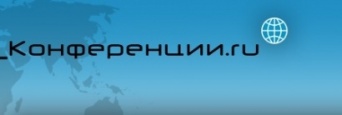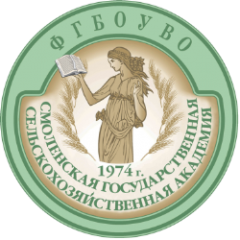IV МЕЖДУНАРОДНАЯ НАУЧНО-ПРАКТИЧЕСКАЯ КОНФЕРЕНЦИЯ «ОБЕСПЕЧЕНИЕ УСТОЙЧИВОГО РАЗВИТИЯ В КОНТЕКСТЕ СЕЛЬСКОГО ХОЗЯЙСТВА, ЭНЕРГЕТИКИ, ЭКОЛОГИИ И НАУКИ О ЗЕМЛЕ» (ESDCA-IV-2024)
Смоленская государственная сельскохозяйственная академия (г. Смоленск, Россия) приглашает Вас опубликовать свои научные труды в журнале E3S Web of Conferences (индексируется в международных базах Scopus и Web of Science), в рамках IV Международной научно-практической конференции «Обеспечение устойчивого развития в контексте сельского хозяйства, энергетики, экологии и науки о Земле» (ESDCA-IV-2024).
Журнал E3S Web of Conferences индексируется в международных базах Scopus (по CiteScore – 4 квартиль, по SJR – без квартиля) и Web of Science (без квартиля, выборочная индексация статей).
Материалы I Международной научно-практической конференции «Обеспечение устойчивого развития в контексте сельского хозяйства, зеленой энергетики, экологии и науки о Земле» (ESDCA-I-2021) были опубликованы в журнале IOP Conference Series: Earth and Environmental Science, том 723 и проиндексированы в SCOPUS.
Материалы II Международной научно-практической конференции «Обеспечение устойчивого развития в контексте сельского хозяйства, зеленой энергетики, экологии и науки о Земле» (ESDCA-II-2022) были опубликованы в журнале IOP Conference Series: Earth and Environmental Science, том 1045 и проиндексированы в SCOPUS.
Материалы III Международной научно-практической конференции «Обеспечение устойчивого развития в контексте сельского хозяйства, зеленой энергетики, экологии и науки о Земле» (ESDCA-III-2023) были опубликованы в журнале IOP Conference Series: Earth and Environmental Science, том 1212 и проиндексированы в SCOPUS.
Конференция проводится с целью обобщения международного опыта в области сельского хозяйства, экологии, энергетики и науках о Земле. В рамках конференции будут представлены научные исследования, направленные на решение комплекса проблем в области устойчивого развития, а именно:
— развитие научного и практического потенциала с целью формирования предложений по внедрению наукоемких технологий в сельском хозяйстве;
— популяризация фундаментальных и прикладных исследований в области сельского хозяйства, зеленой энергетики, экологии и природопользовании, горных работ и технологий обработки почвы;
— формирование рекомендаций, направленных на совершенствование компьютерных моделей, информационных технологий, инжиниринга, инновационных и цифровых технологий в сельском хозяйстве, защите окружающей среды и зеленой энергетике.
Для участия в конференции приглашаются студенты, аспиранты, преподаватели, молодые ученые, работники профильных организаций, ученые различных научно-исследовательских и образовательных учреждений, а также представители государственных учреждений.
На пленарной сессии с докладами выступят видные ученые Российской Федерации и других государств в области сельского хозяйства, зеленой энергетики, экологии и науках о Земле.
В международный программный и организационный комитет входят российские, таджикские и зарубежные ученые научно-исследовательских и образовательных учреждений, а также представители различных сфер деятельности и отраслей промышленности.
Важные даты:
08 августа 2023 года — информационное письмо;
06 марта 2024 года — окончание регистрации и принятия статей;
10 марта 2024 года — окончание рецензирования и опубликование программы конференции;
11-14 марта 2024 года — проведение конференции.
Программа конференции будет сформирована по результатам поступивших материалов и опубликована не позднее 10 марта 2024 года на сайте конференции.
Организатор конференции: Смоленская государственная сельскохозяйственная академия, г. Смоленск, Российская Федерация.
Основные направления конференции:
1. Сельское хозяйство, полеводство, лесное хозяйство и сельскохозяйственная продукция:
— Развитие растениеводства и сельского хозяйства в современных условиях;
— Вопросы агрономии и агроэкологии;
— Обеспечение развития селекции и семеноводства;
— Растениеводство в кормлении сельскохозяйственных животных;
— Современные научные достижения - практика производства и переработки продукции растениеводства;
— Мониторинг состояния сельскохозяйственных угодий, посевов продукции;
— Флора и фауна сельского: проблемы и перспективы;
— Актуальные вопросы инфекционных болезней в растениеводстве;
— Технологии возделывания сельскохозяйственных культур;
— Агрономическая химия. Сохранение плодородия почвы;
— Агропродовольственные, сельскохозяйственные и продовольственные системы.
2. Механизация, машиностроение, технологии, инновации и цифровые технологии в сельском хозяйстве:
— Агробиотехнология в селекции и производстве сельскохозяйственных культур;
— Научное обеспечение инновационного развития сельского хозяйства;
— Цифровизация, автоматизация и роботизация агропромышленного комплекса;
— Механизация и электрификация сельского хозяйства;
— Биотехнические системы и технологии в сельском хозяйстве;
— Математическое моделирование прикладных задач механики в АПК;
— Развитие инженерных технологий в агропромышленном комплексе;
— Пищевые технологии в агропромышленном производстве;
— Машины и оборудование для селекции и семеноводства;
— Охрана окружающей среды в агропромышленном производстве;
— Тракторная и сельскохозяйственная техника;
— Организация агропромышленного производства и сельского хозяйства;
— Ресурсосберегающие технологии, рациональное использование природных ресурсов и инновационные технологии в АПК.
3. Современные аспекты ветеринарии, зоотехнии и животноводства:
— Актуальные проблемы терапии;
— Актуальные проблемы физиологии и морфологии животных;
— Паразитология и инвазионные болезни животных;
— Методы диагностики и профилактики заразных болезней животных;
— Вопросы эпизоотологии: российские и мировые тенденции;
— Ветеринарно-санитарная экспертиза;
— Технологии кормления животных;
— Актуальные вопросы инфекционной патологии и биотехнологии;
— Животноводство в сельском хозяйстве;
— Генетические технологии в сельском хозяйстве;
— Актуальные проблемы генетики и биотехнологии для оценки экспрессии генов;
— Генетические ресурсы животноводства России и в мире;
4. Экономика и управление в агропромышленном комплексе:
— Экономика сельского хозяйства. Межотраслевые отношения в агропромышленном комплексе;
— Устойчивое развитие сельского хозяйства;
— Организация агропромышленного производства и сельского хозяйства;
— Экономические и финансовые вопросы развития сельского хозяйства;
— Управление сельскохозяйственной деятельностью и агропромышленным производством.
5. Развитие пищевой промышленности:
— Технологии пищевых продуктов из растительного сырья;
— Перспективные направления переработки растительного сырья;
— Технологическое оборудование, процессы и аппараты пищевых производств;
— Биотехнологии в пищевой промышленности;
— Технология пищевых продуктов животного происхождения;
— Разработка прогрессивных технологий и высокоэффективного оборудования для пищевой промышленности;
— Современные направления повышения качества пищевых продуктов;
— Инновационные технологии производства, переработки и хранения продуктов питания;
— Качество и безопасность пищевого сырья и продуктов питания.
6. Экология и охрана окружающей среды:
— Охрана окружающей среды, природопользование и экологическая безопасность;
— Управление производством при переходе к устойчивому развитию;
— Организация эффективного и экологически чистого производства;
— Биоразнообразие и пути его сохранения;
— Природно-климатические и антропогенные факторы в эволюции природных экосистем;
— Охрана окружающей среды в агропромышленном производстве;
— Экологический менеджмент и охрана окружающей среды, технологии добычи и обработки почвы;
— Системный анализ, физико-математическое моделирование, компьютерные и информационные технологии в контексте устойчивого развития;
— Экологический менеджмент и инженерия;
— Экологический и электрический транспорт;
— Чистые технологии в добыче полезных ископаемых;
— Возобновляемые и альтернативные источники энергии. Зеленая энергия;
— Производство энергии в контексте перехода к устойчивому развитию.
7. Сохранение биологического разнообразия:
— Сохранение биоразнообразия растений;
— Биоразнообразие и устойчивость растений;
— Природно-климатические и антропогенные факторы в эволюции природных экосистем;
— Экологические и физиолого-биохимические адаптации организмов для сохранения биоразнообразия;
— Инвентаризация и мониторинг биоразнообразия;
— Таксономическое и структурное биоразнообразие особо охраняемых и нарушенных территорий;
— Мониторинг абиотических и биотических компонентов экосистем;
— Рациональное использование биоразнообразия живых организмов человеком; экологическая биотехнология;
— Факторы разнообразия и экология популяций;
— Изменения состава и структуры биоразнообразия под влиянием климатических и антропогенных факторов;
— Сохранение лесного фонда;
— Лесные, степные и торфяные пожары: способы борьбы с ними.
8. Вопросы электроэнергетических систем, сетей и электростанций:
— Интеллектуальные, информационные, цифровые и автоматизированные технологии в электрических системах и сетях;
— Энергетические системы и комплексы;
— Надежность и безопасность энергосистемы;
— Транспортировка топливно-энергетических ресурсов и передача электроэнергии;
— Энергетика и передовые технологии;
— Атомные, тепловые, гидроэлектростанции и возобновляемые источники энергии;
— Мировая энергетическая инфраструктура и электроэнергетические комплексы;
— Вопросы организации и управления электроэнергетическим комплексом.
9. Проблемы топливно-энергетического комплекса:
— Техническое и технологическое развитие топливно-энергетического комплекса;
— Материаловедение и материаловедение в энергетике;
— Добытые ресурсы: уголь, газ, нефть, торф и другие полезные ископаемые;
— Организация работы объектов топливно-энергетического комплекса;
— Системный анализ, физико-математическое моделирование, компьютерные и информационные технологии в топливно-энергетическом комплексе;
— Рациональное использование природных ресурсов, технологии добычи и обработки почвы;
— Инновационные технологии, инжиниринг и Индустрия 4.0 в топливно-энергетическом комплексе;
— Геология, поиски и разведка твердых полезных ископаемых, минерагения;
— Общая геология и геологическое картирование;
— Региональная геология, палеонтология, стратиграфия, минералогия, геохимия и петрография;
— Геология, поиски, разведка и подсчет запасов месторождений углеводородов;
— Разработка и эксплуатация нефтяных и газовых месторождений;
— Общеинженерные методы решения горно-геологических задач.
10. Физические процессы в энергетике:
— Установки и системы для проведения теплофизических, ядерно-физических исследований, неравновесных физических процессов;
— Особенности физических процессов при получении и использовании различных видов топлива;
— Теплофизические исследования. Теплофизические проблемы ядерной энергетики;
— Изучение физических свойств газа;
— Модификация материалов наноразмерными покрытиями в энергетике;
— Разработка физических механизмов и математических моделей в энергетике;
— Методы диагностики устойчивости процессов горения, технического состояния деталей и механизмов промышленных энергетических установок;
— Методы интенсификации процессов горения и тепломассообмена;
— Вибрационное (пульсирующее) горение газообразного, жидкого и твердого топлива в типовых акустических системах;
— Физика процесса горения. Фазовые равновесия и превращения;
— Процессы окисления и засоления. Кинетика коррозионных процессов;
— Инженерная физика в энергетике;
— Нефтегазовое, экологическое, химическое и энергетическое машиностроение;
— Автоматизация промышленных производств и киберфизических систем в топливно-энергетическом комплексе.
11. Энергосбережение и возобновляемые источники энергии:
— Энергоэффективность и энергосбережение: вопросы науки и практики;
— Энергосистемы на основе природной энергии;
— Проблемы энергосбережения в источниках тепло- и холодоснабжения;
— Солнечная энергия, солнечные системы отопления и горячего водоснабжения;
— Энергетика мелководья, энергообеспечение сельскохозяйственных объектов с использованием микро- и малых ГЭС;
— Солнечные тепловые установки, тепловые насосы и автономные системы теплоснабжения - выбросы от объектов на базе теплонасосных установок;
— Комбинированные солнечные теплонасосные системы и установки;
— Использование энергии биомассы, электростанции для производства альтернативного топлива из биомассы;
— Солнечная тепловая обработка биомассы.
Председатель организационного комитета: Гибадуллин Артур Артурович – кандидат экономических наук, доцент Национального исследовательского университета "Московский энергетический институт", г. Москва, Российская Федерация, адрес электронной почты: esdca2021@mail.ru, WhatsApp и Telegram: +7(962)568-49-47.
Требования к статьям:
— статья должна соответствовать одной из тематик конференции;
— статья должна быть на английском или русском языке;
— статья должна содержать следующие разделы: «Введение», «Материалы и методы», «Результаты», «Обсуждение» и «Заключение» (раздел «Благодарности» пишется при необходимости);
— объём статьи должен составлять минимум 4 страницы (рекомендуется до 6-8 страниц);
— рекомендуемое количество авторов не должно превышать 5;
— ссылки должны быть сделаны в соответствии с требованиями Издательства. Ссылки, как правило, нужно делать только на источники (статьи) из международных журналов;
— текст должен быть набран в электронном виде в формате Microsoft Word 2007/2003. Текст может быть проиллюстрирован диаграммами и таблицами. Все иллюстрации должны находиться в границах текста (не выходить на поля листа);
— статья должна содержать аннотацию (не более 200 слов);
— количество ссылок в списке литературы должно быть не менее 10;
— самоцитирование не должно превышать 10%;
— оригинальность статьи не менее 85% (без списка литературы);
— все авторы должны быть ознакомлены с лицензионным соглашением;
— все статьи проходят обязательную проверку на плагиат и направляются на двойное слепое рецензирование.
Порядок опубликования статьи в журнале, индексируемом в Scopus:
1. Направление статьи на почту конференции (Word-формат): esdca2021@mail.ru;
2. После рецензирования Вам придет соответствующая информация об оплате.
Стоимость публикации статьи:
20 000 российских рублей, в случае если статья оформлена по требованиям журнала и переведена на английский язык. Стоимость публикации может быть увеличена из-за повышения курса валют.
Если статья не оформлена по требованиям журнала или требуется перевод на английский язык, то данные услуги оплачиваются отдельно:
— 2000 российских рублей – стоимость оформления статьи по требованиям журнала (до 6 страниц, включая рисунки, таблицы и список литературы, список литературы не более 10-12 источников);
— 6500 российских рублей – стоимость перевода на английский язык (до 6 страниц, включая рисунки, таблицы и список литературы, список литературы не более 10-12 источников).
Оплата за публикацию, оформление и перевод на английский язык осуществляется только после выставления счета (уведомления о принятии статьи). При необходимости заключаются договоры с физическими и юридическими лицами.
Сроки публикации:
Прием статей будет осуществляться до 06 марта 2024 года.
Передача статей в редакцию журнала произойдет до 15 мая 2024 года.
Публикация статей осуществляется до 3 месяцев с момента отправления материалов в Издательство.
Индексация статей в международной базе Scopus от 1 до 3 месяца с момента публикации.



Наши партнеры
приём статей по данной конференции завершен, приглашаем вас подать статьи на следующие конференции:




